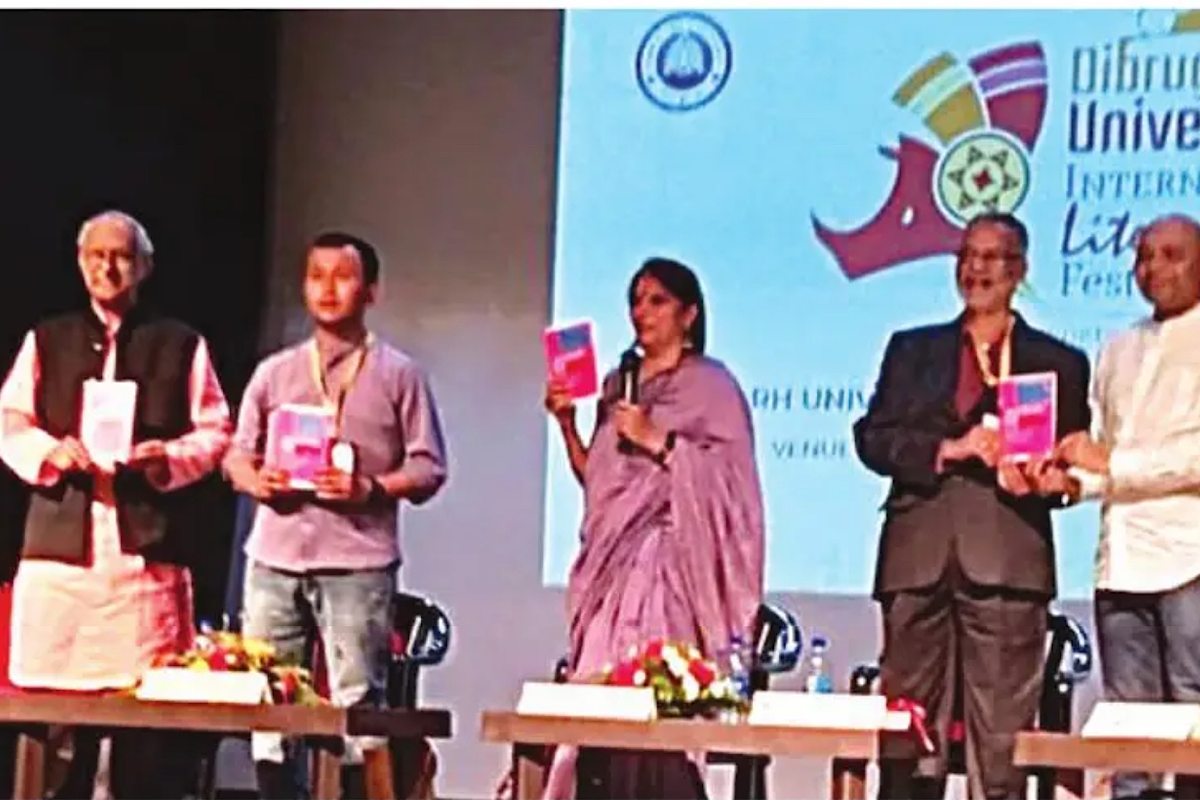The mention of literary festivals might raise a yawn or even a groan; they seem to have proliferated to such an extent that Kolkata, as a case in point, has three in the space of a month. And this is when the printed page is believed to be yielding inexorably to the Internet device, and when children of schoolgoing age are understood to be averse to the ‘reading habit’. And yet, these book events seem to draw reasonable crowds and are obviously adequately sponsored to the extent that they are not loss-making.
Perhaps it is the presence of celebritywriters that attract the attendance and the investment, but not all speakers are celebrities, and the sprinkling of well-known names can hardly ensure a full house for every session. The Dibrugarh Literary Festival last month was the first of its kind, and different from the norm in many important respects. It was held in the spacious premises of Dibrugarh University with an enthusiastic and engaged audience of young people which lent it a special characteristic. Every session of the three running concurrently was ‘sold out’ and the students asked the relevant and occasionally penetrating questions.
Advertisement
It can be assumed that if the festival had continued beyond the scheduled three days, the youthful audience would not have flagged in their support. For the writers, the students’ affection was a unique encouragement. Three-fifths of the speakers were women, a gender proportion rarely achieved by such events. The age profile of the females was low, which added to their attraction for the student body. There were no ‘celebrities’ to attract that elusive species known as the ‘general reader’ or those that gape at authors they have heard of but have never read and have no intention of reading.
Therefore, no Salman Rushdie, Shashi Tharoor, Amitav Ghosh or Raghuram Rajan whose presence fills vast open spaces. Neither were there Geetanjali Shree or Arundhati Roy. In lieu of these worthies, there was a stimulating cocktail of writers from near and distant foreign lands; Trinidad, Brazil, Cambodia, Vietnam, Bhutan, Bangladesh, Sri Lanka, Australia.
The Indian contingent was equally eclectic: A highly distinguished Assamese film maker, a Goan writer/activist, an online platform editor, military historians, two retired diplomat-authors, skilled moderators (as one would expect) from the Indian Police and Administrative Services, feminists, thriller authors, poets, and scribes of diverse dimensions who had incidentally served as cultural representatives in Indian embassies abroad. Given the different venues (other than the main auditorium, these were converted classrooms) the proceedings ran smoothly, other than for the inordinate delay in starting the inaugural session due to the late arrival of a main speakers.
It is time in India to shed our capacity for infinite patience in deference to late-coming important personages. It would be no loss to humankind to forego the statement of any chief guest when balanced with the inconvenience and growing irritation of the waiting audience. The opening speeches by the Vice Chancellor of Dibrugarh University Jiten Hazarika, Damodar Mauzo and Jahnu Barua, were au point to the occasion and some asides were noted on freedom of expression and the necessary environment for the exercise of human rights in a country as diverse and layered as federal India.
But neither in this nor any subsequent session was there any political statement that could unduly agitate the government or opposition. There were some social occasions when the writers did not conform to the national stereotype. A Sikh poet was flamboyant in an energetic dance which was certainly not the bhangra. A female Vietnamese translator also proved equally unrestrained. A Bhutanese screenwriter and Brazilian illustrator were unreticent in attempting an Assamese folk dance.
It was an inspired choice to request a writer from Vietnam – not officially sponsored, he assured me – to offer the concluding vote of thanks. On the off-piste calendar, the visit to a tea estate owned by Manoj and Vineeta Jalan provided insight into one resource of what was the wealthiest district in undivided Assam. This literary programme was organized by the Foundation for Culture, Arts and Literature (FOCAL) and intended to connect the student community of Dibrugarh University and its affiliated colleges “with the vast realm of global literature and intellectualism, fostering a spirit of exploration and exchange that transcends boundaries.”
The chief organizer of FOCAL is Rahul Jain whose meticulous skills were abundantly in evidence. An epitome of calm management, he was the backstage conductor of all the moving parts. But when he chose to moderate a session on contemporary Sri Lanka, it became clear that his direction of front stage developments was also second to none.
(The writer is a former foreign secretary and author of both fiction and non-fiction books.)











